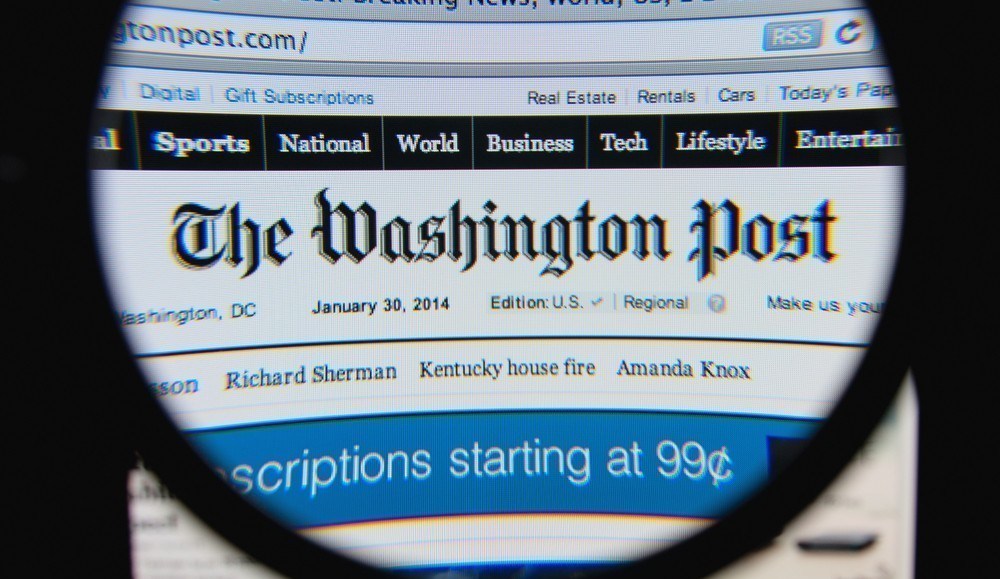Secure your place at the Digiday Publishing Summit in Vail, March 23-25

Like all newspapers, The Washington Post is still trying to figure out how to survive in the post-newspaper age. Beyond that, it’s also trying to figure how to expand its influence beyond just its powerful neighborhood home base.
New owner Jeff Bezos is giving both of those efforts a boost. The Amazon CEO, who bought the newspaper for $250 million last year, is quickly infusing it with Amazon’s sensibilities, particularly with its latest move. The Washington Post this week said that it will make its Web content available free to subscribers of a half-dozen metro newspapers around the country beginning in May.
“You could never do this with a print product,” said Washington Post president Steve Hills. This is the magic of digital: Unlike with newspapers, giving more people access to digital content comes with negligible marginal cost. From a tech perspective, giving 1 million people free access is no more expensive than doing the same for 100,000.
In other words, the move is a pure scale and distribution play for the Washington Post, which is looking to introduce the paper to readers outside of political hubs like Washington, D.C., and New York City. That’s why there’s no money changing hands between the Post and its partner papers. If you’re trying to get a lot of people using your product, it helps if they don’t have to pay for it. “We wanted to make the program as simple as possible, to get as many participants as possible,” Hills said.
This could be a big deal for the seven newspapers that the Post is working with so far. By offering its content for free, the Washington Post will help its partners offer a major value-add to their own customers. Hills said that he expects this will add more than a billion dollars to the newspaper industry over the next few years.
“What you want to do is create the kind of value that makes the customer say, ‘Switching out of this will cause me to lose a lot of value that would be expensive to get otherwise,'” said Jim Moroney, publisher and CEO of The Dallas Morning News, one of the Washington Post’s first partners — and the 12th-largest newspaper in the United States, by circulation.
Much of this approach is torn from Amazon’s own playbook. In 2005, Amazon launched Amazon Prime, its $80-a-year two-day shipping program, which has become indispensable for many of its customers. In an effort to make it even more unlikely they’d lose those customers, Amazon also started offering Prime subscribers access to its Instant Video streaming service and, more recently, its Kindle Owners’ Lending Library.
While that approach fits well within Amazon’s “customer first” dictum, it is also a nightmare for investors, many of whom are turned off by Amazon’s habit of using its high-margin businesses to subsidize its low-margin ones. The disagreement is both practical and philosophical: While many investors are looking for short-term payoffs, Jeff Bezos has said that he’s OK with sacrificing short-term gains for long-term success. And that’s the approach that he seems to be bringing to The Washington Post.
“When you really start thinking long term like that, it opens up a very wide range of possibilities and options,” said Steve Hills.
Image via Shutterstock.
More in Media

Media Briefing: As AI search grows, a cottage industry of GEO vendors is booming
A wave of new GEO vendors promises improving visibility in AI-generated search, though some question how effective the services really are.

‘Not a big part of the work’: Meta’s LLM bet has yet to touch its core ads business
Meta knows LLMs could transform its ads business. Getting there is another matter.

How creator talent agencies are evolving into multi-platform operators
The legacy agency model is being re-built from the ground up to better serve the maturing creator economy – here’s what that looks like.





